Play is a big part of our lives as children, but why do we lose our playfulness as we age? I talk a lot about the emotional and physical aspects of play, especially regarding Positive Ageing and aspects of Parkour. So many people feel like play is out of reach as they approach midlife, even though it’s an innate part of you.
So why is play important?
A man named Jaak Panksepp pioneered the connection between the biology and psychology of play. He discovered that play is homeostatically (from the Greek words for “same” and “steady,” refers to any process that living things use to actively maintain fairly stable conditions necessary for survival) regulated. If children are restricted from playing for an extended period of time, they will play tenfold when they get the chance. Humans are naturally attracted to the art of play, it makes us feel good and liberated. It allows you to expand your identity and potential in every aspect of your life.
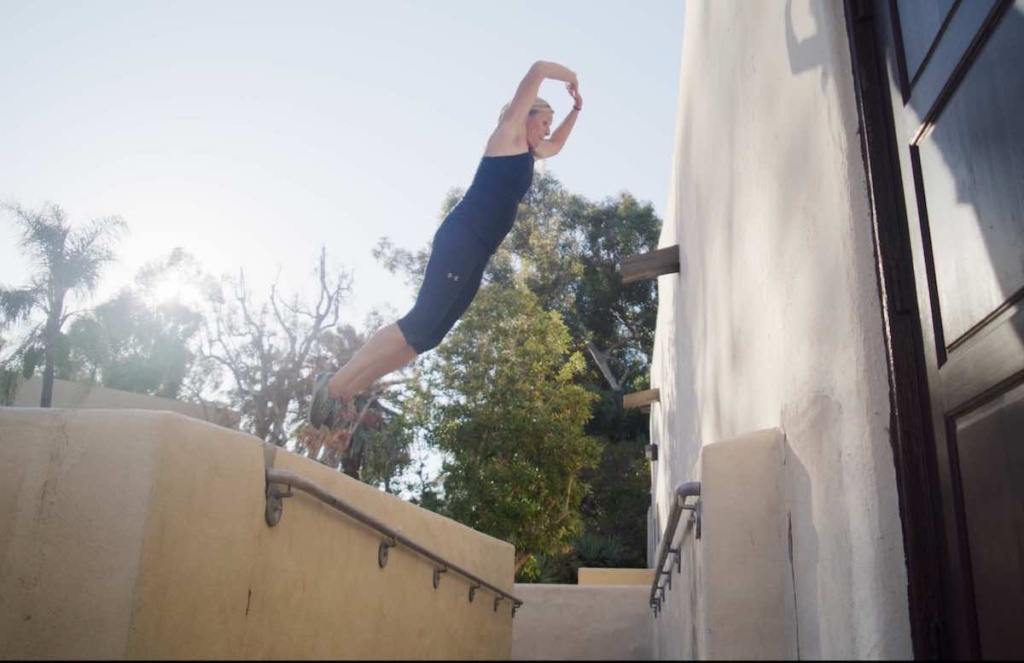
It may surprise you how scientifically explored play is, a concept that’s often forgotten in our busy adult lives. Research shows that play ignites a rush of naturally-occurring endogenous opioids into the brain, which increases our feeling of well-being. These opioids benefit us by expanding the function of the prefrontal cortex. This is the area of the brain responsible for executive function.
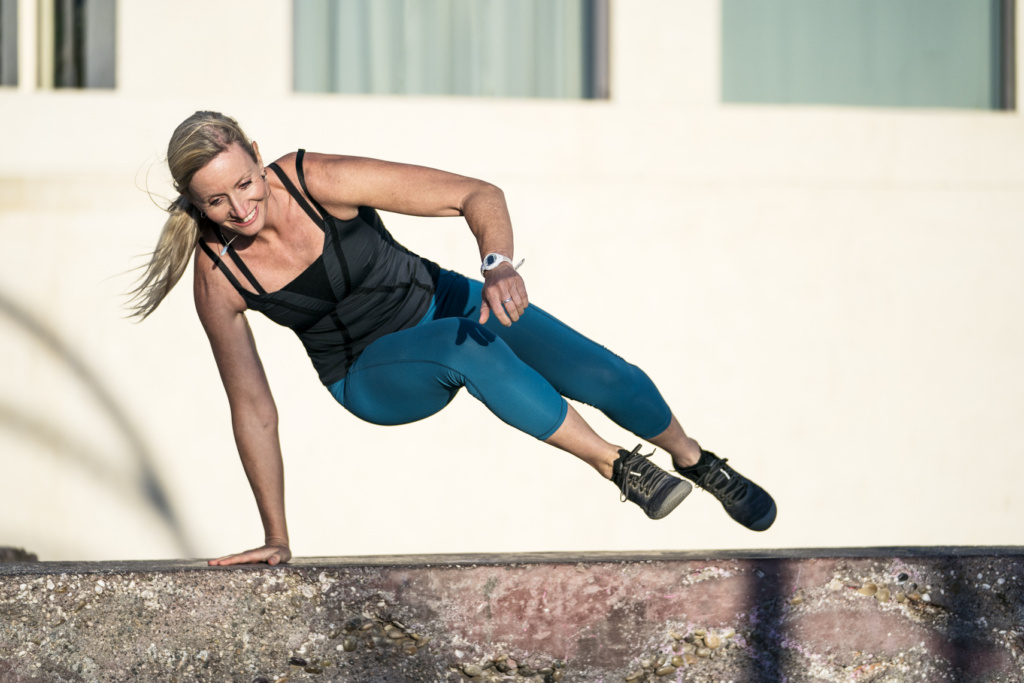
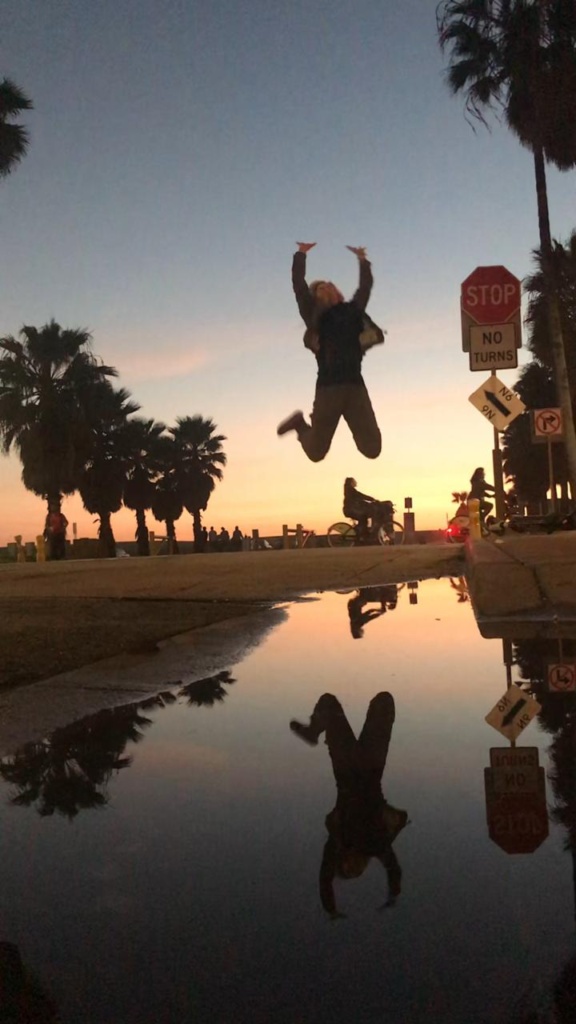
For example, during parkour, you’re engaging in play. Your prefrontal cortex allows you to think that if I jump on this bench, I will land on the jump. If I try to jump off the ledge, I might not make it. This is where parkour and play become deeply interconnected. They are both fundamentally about understanding that if you do A, then B will happen.
You begin to explore your environment differently and look at the world through a new lens. This is both a result of your emotions and the neurological response of play.
Play allows us to explore different outcomes in a low-stakes environment. This is why engaging in play can influence your entire life, not just physical health. As you start to break away from limiting beliefs, your threshold for overcoming obstacles increases. You begin discovering new ideas about your potential, identity, and place in the world.
“Learn to read symptoms not only as problems to be overcome but as messages to be heeded.”
― Gabor Maté,
I talk about the power of play and Positive Ageing because it rejuvenates those lost pieces of ourselves that lead to feeling disconnected in midlife. Taking it back to the brain, play increases your neuroplasticity, which can help you expand your ways of thinking and moving. Practicing play physically awakens the playful mindset! As I always say, you can’t separate the mind and body. This is another major piece of the puzzle when discussing the power of play.
Parkour is just as much a deeply emotional experience as it is physical. A roadblock many people face is believing they aren’t playful. The truth is you don’t have to look at play as a childish activity, but more so as a gateway for your growth. Play can look like so many things, with the bottom line being that you’re exploring something that’s just outside of your comfort zone. It’s not always about having fun but expanding your brain’s capacity (which is essential at any age, not just during youth).
“Adopting the right attitude can convert a negative stress into a positive one.” Hans Selye
So, how do you know if you’re playing? Your adrenaline needs to be low for your brain to receive the feel-good opioids. So when you’re in a playful mindset, you will be focused, calm, and operating in a relatively low-stakes environment. This is why during parkour, it’s not about doing the biggest jump or committing to a movement you can’t land. It’s about the mindset of focus, repetition, and overcoming obstacles.
As time goes on, you’ll naturally ‘up the stakes,’ as your confidence increases. So parkour evokes this playfulness that operates in a very personal way, where you can step into your own flow state. There are no failures or competition outside of your own willingness to complete the next step so you can get from A to B efficiently.
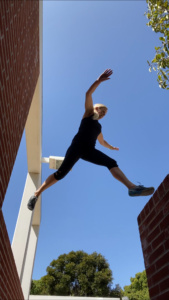
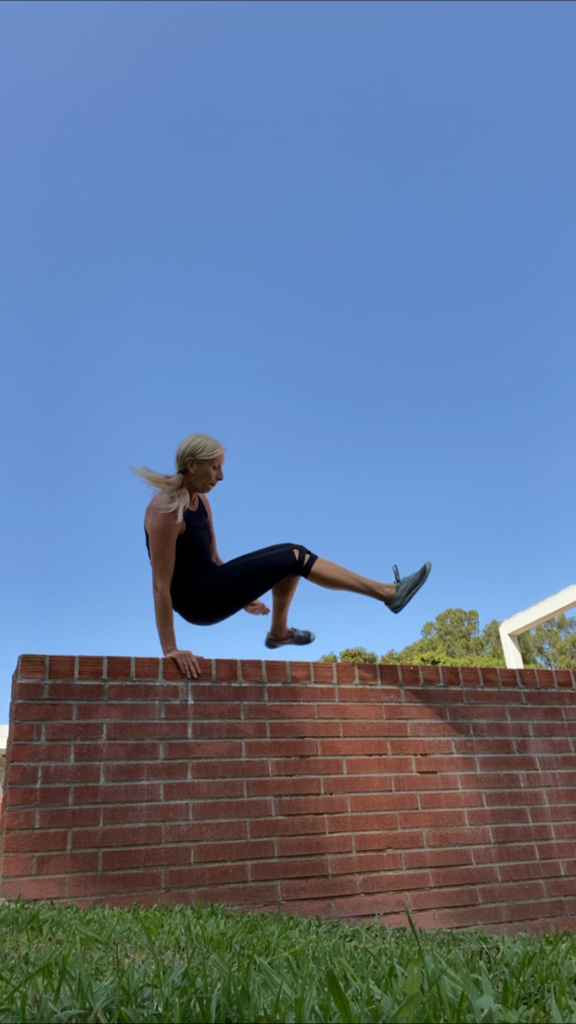
In the end, play isn’t about becoming the best at one thing. It allows you to learn new rules and expand your potential for what you’re capable of in the future. New interactions and possibilities of you.
From a neuroplasticity perspective, play involves two things to be effective: focus and rest.
This is why when you study for something, it’s important to sleep or take a nap. You wake up with a deeper understanding of the material. Rest is when our brain creates new connections.
Similar to the fact that recovery is when our body builds muscle. The repetition of play allows you to evolve, change, and dare to be creative in everything you do.
(This is why there’s a P for Parkour and Play in my M.A.P.S. system and a S for STRONG Resting.)
My main advice:
Slow down and create awareness.
People across various industries recognise the power of play and its ability to change the way we think. Engaging in novel forms of movement, dance, exploration, and mobility practices are great ways to explore play. Tapping into this playful mindset/lifestyle can help you heal from previous traumas and increase resiliency, all while cultivating a strong body and mind. Parkour creates a synergistic experience of play and Positive Ageing.
You can begin to discover yourself again, as you are right now. You can explore the ever-changing environment around you, and discover who you want to become in the future. It’s not just something silly that makes us feel good, it’s science!
Play can be shared or enjoyed individually. I encourage you to think about how play fits into your life. How would your movement change if you started prioritising playfulness? You may be surprised how much you can learn through reconnecting with the lost art of play.
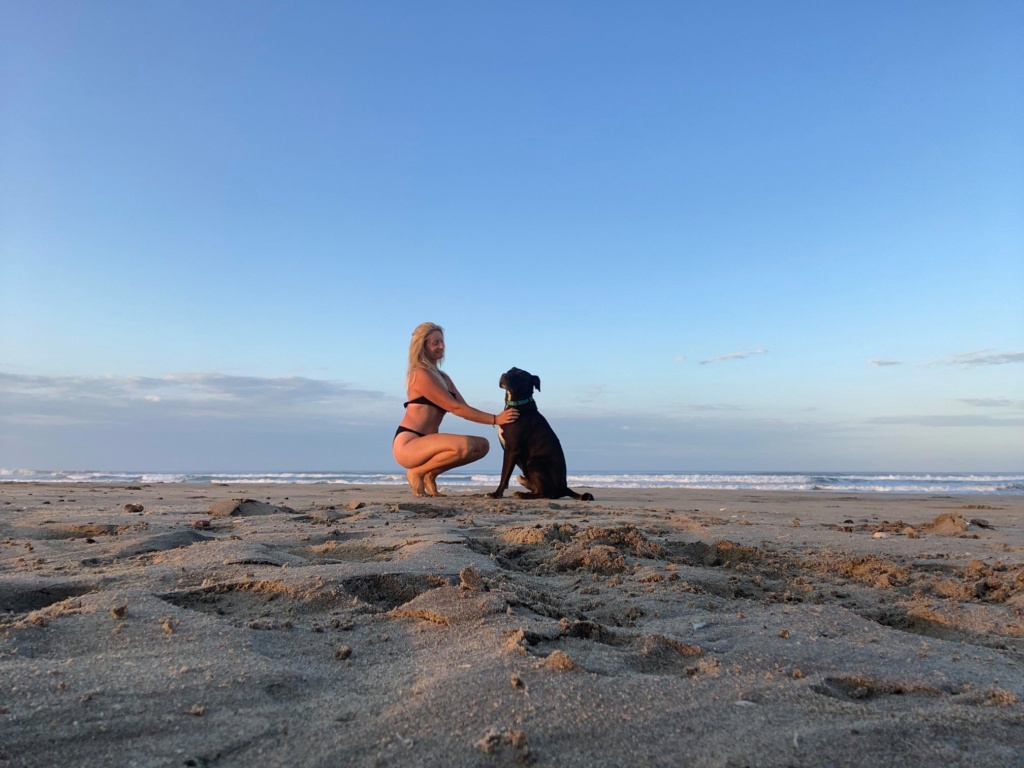
I hope this post helps you understand what stress is, so you are able to be aware of it and optimize your response to stress.
As Hans Selye says, “It’s not stress that kills us, it’s our reaction to it.”
So keep that in mind next time you start to feel overwhelmed by everything on your plate.
If you have any questions, please leave them below or send me a message. Have a great day, remember to be mindful of your stress,
cheers x Julie

